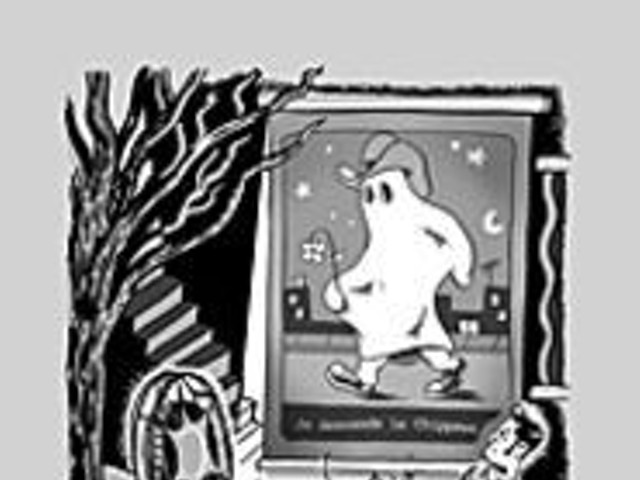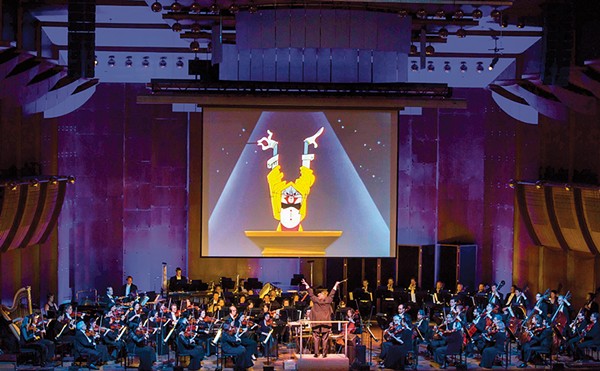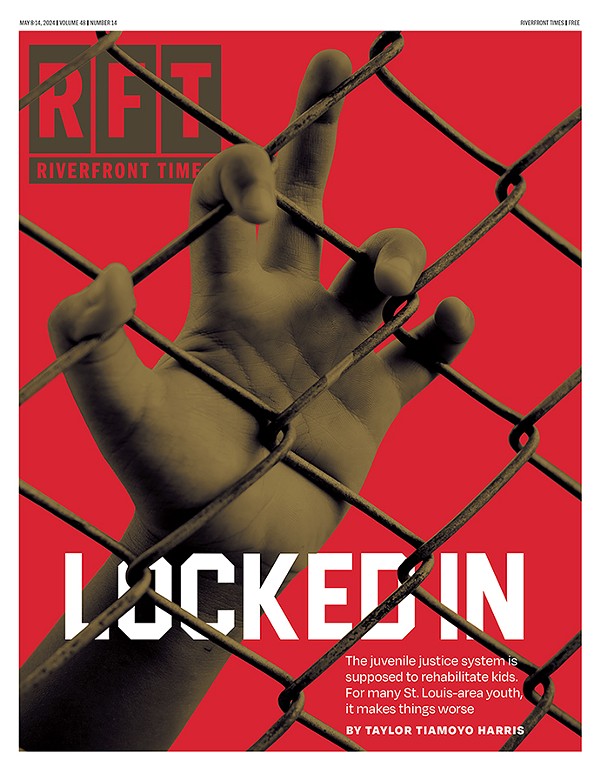As the show begins, the plot -- which is told through more than 30 songs -- focuses on a dysfunctional Jewish family in 1979. Marvin (Bill Lynch) has left his wife Trina (Sharon Hunter) and preteen son Jason (Alex Prakken) because he's fallen in love with a man, Whizzer (Greg Matzker). No sooner is Marvin out of the house than Mendel, his opportunistic psychiatrist (Steve Isom), puts the make on Trina. Got all that? If not, don't worry. The contrapuntal opening number, "Four Jews in a Room Bitching," hilariously sorts out the plot lines. But Falsettos, funny as it often is, is not about jokes; these are believable characters.
Act Two picks up the plot two years later. Marvin and Whizzer are on the outs, Trina and Mendel's marriage is a little shaky and young Jason is still very confused. But although the songs continue to delight and engage, there is a compelling difference between the two acts. In a word, that difference is AIDS -- though that word is never uttered onstage.
But then, words here are not always what they seem. Take the title, for instance. Falsettos is simply a canopy for two one-act musicals that were written and produced nine years apart. When Act One, which originally was titled March of the Falsettos, debuted in 1981, AIDS was still on the horizon; in 1981 only 422 cases were diagnosed in America. Hence, Act One was written at a time when a man like Marvin, however flawed, at least was responsible for his life choices. But by 1990 AIDS has escalated to epidemic proportions. By 1990 (the same year that former president Ronald Reagan apologized to the nation for having neglected AIDS during his eight years in the White House) nearly 200,000 new cases were diagnosed in the United States alone.
But Reagan wasn't alone in trying to avoid AIDS. In the'80s musical-theater audiences didn't want to confront the bad news either; they clamored for bloated escapist fantasies like Cats and The Phantom of the Opera. It was left to Finn to address the times. In Falsettoland (which is now Act Two), written in 1990 yet set in 1981, Marvin and Whizzer have become potential targets of an unnamed scourge over which they are powerless. Act Two introduces two lesbian characters, Dr. Charlotte (Anna Blair) and her amiable companion (Alice Kinsella). It is Dr. Charlotte who delivers the ominous diagnosis as she sings, "Something bad is spreading...."
Not only does Falsettos address the times -- its protagonist futilely strives to alter time itself. Act Two begins with Marvin plaintively singing, "It's about time to grow up and face the music -- it's about time." Lynch elongates and holds onto that final "time" as if a noun is capable of sustaining life.
To some would-be viewers, the show's very premise will sound off-putting. It's not; Falsettos is rich in humor and emotion. Finn's savvy songs incorporate everything from soft-shoe vaudeville to mini-opera. Yet in addition to all the cleverness and dazzle, there's hardly a lyric that doesn't either advance the action or reveal character. Falsettos is a welcome reminder that crashing chandeliers and hovering helicopters are not prerequisites to entertainment; just show us a few people about whom we can care.
As deftly directed by Edward M. Coffield and choreographed by Libby Salvia on the JCC's postage-stamp stage -- along with the energetic support of musical director Kevin Kurth at the synthesizer -- the New Jewish production is outstanding. Although the entire cast excels, Lynch's rock-solid Marvin is wonderfully truthful and Isom's performance personifies poise and assurance. For the concerned audience, perhaps the evening's greatest challenge rests with young Prakken. At the outset the juvenile tended to swallow his words. (Opening-night jitters?) But by the end of Act Two he had found his confidence and stood as tall as anyone on the stage.
There's always the risk that excessive praise might lead to inflated expectations. So we should note that not every lyric is crystal-clear, not every musical number is foolproof. At the same time, anyone who cares about serious musical theater should find something to cherish in this sublimely exhilarating and sadly stirring portrait of 1980s America.





